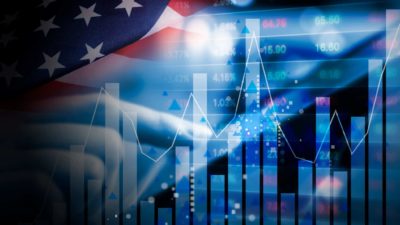This article was originally published on Fool.com. All figures quoted in US dollars unless otherwise stated.
Alphabet (NASDAQ: GOOG) (NASDAQ: GOOGL) isn't, strictly speaking, an electric vehicle (EV) company. However, its autonomous driving technology company, Waymo, is committed to only using EVs in its fleet. Funnily enough, it could be argued that Tesla (NASDAQ: TSLA) isn't really a pure EV company either. After all, most of its sky–high valuation is attributable to the potential of its robotaxis.
However, the comparison of these two as EV companies is valid because the future of the auto industry is EVs, and ridesharing in autonomous vehicles will be a larger part of the industry in the future. But which company is better placed, and which is the better stock?
Alphabet vs. Tesla
It's entirely possible that Alphabet could decide to spin off Waymo, not least because it reportedly could be valued at more than $45 billion. Meanwhile, one of Tesla's biggest supporters, Cathie Wood's Ark Invest, ascribes 88% of Tesla's enterprise value (market cap plus net debt) to robotaxis in its investment case for the stock, producing an expected value of $2,600 for the stock in 2029.
As I have previously discussed, the Ark targets should be taken with a pinch of salt, as its track record on Tesla hasn't been good. However, Ark's core argument is sound and points to Tesla being potentially a far more valuable stock than Waymo ever will be.
Pathways to profitability
The core argument is that Tesla's business model is scalable to profitability while Waymo's is far less so. The issue of Waymo's profitability arose in a recent CNBC interview with Waymo co-CEO Tekedra Mawakana, where she was asked whether Waymo is profitable. She replied, "We're proving out that it can be a profitable business." When asked when Waymo would be profitable, she replied, "not clear."
It's also not clear if Alphabet/Waymo doesn't have an internal forecast for when it will hit profitability, or if Mawakana preferred not to divulge what the company considers an uncertain forecast. However, it's inconceivable that Alphabet is not internally crunching the numbers on this, and if it does decide to spin off Waymo, it's a question that needs to be answered.
The point here is that a business that can't be profitable isn't worth anything, let alone $45 billion, so at some point, its management is going to have to set some timelines.
Tesla and timelines
Whereas investors need to hear more about timelines from Waymo, whose public self-driving ride-hailing service was launched in 2018, there's probably a need for fewer declared timelines from Tesla, or, rather, a need for more accurate ones. For example, in 2019, CEO Elon Musk famously told investors to expect a million self-driving vehicles on the road by mid-2020. In April 2022, he also stated that Tesla aspired to reach volume production of a dedicated robotaxi (Cybercab) in 2024 -- a timeline that has now been pushed back to 2026.
These timeline estimates matter because plugging overly optimistic assumptions from them into valuation models can produce dramatically erroneous conclusions.
Why Tesla is better positioned
With all that said, Tesla has clear advantages over Waymo, provided it can demonstrate safety and reliability and achieve regulatory approvals. Its advantages include:
- Lower vehicle costs, with Musk aiming for a $30,000 price tag for a dedicated robotaxi, the Cybercab. Meanwhile, Wall Street analysts estimate Waymo's current vehicles cost more than $120,000.
- In addition, Tesla manufactures its own cars (Waymo does not), and existing Teslas can be converted into robotaxis using Tesla's as-yet-unreleased-to-the-public unsupervised full self-driving (FSD) software, giving Tesla a significant advantage in scaling the robotaxi business.
- Tesla's use of camera-centric technology is inherently less expensive than Waymo's combination of cameras, light detection and ranging (Lidar) lasers, and high-definition maps.
- Every Tesla car (robotaxi or not) on the road is effectively a data gatherer, with the data used to improve the AI that powers its AI models. As such, even though Waymo was first, Tesla has significantly more data than Waymo.
Which is the better EV stock?
Waymo may become profitable in the future, particularly if Lidar costs continue to drop. However, it's challenging to think that it will be a strong competitor to Tesla, provided Musk's company can master safe, unsupervised FSD using a camera-centric approach. That's a big "if" at this stage, but it becomes a smaller "if" as time goes by and Tesla expands its nascent robotaxi offering across new geographies. Tesla's next robotaxi launch is expected to be in Phoenix, as it plans to continue slowly building its robotaxi business. I think Tesla is the better EV stock when comparing Tesla and Alphabet.
This article was originally published on Fool.com. All figures quoted in US dollars unless otherwise stated.









